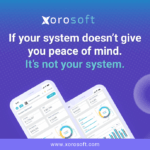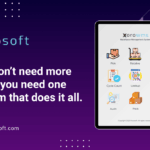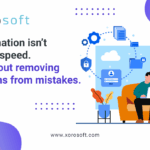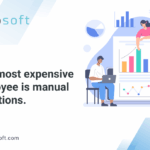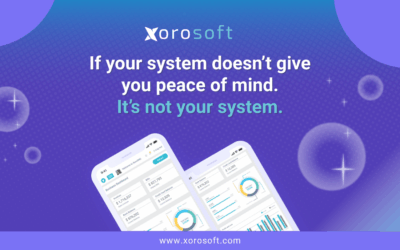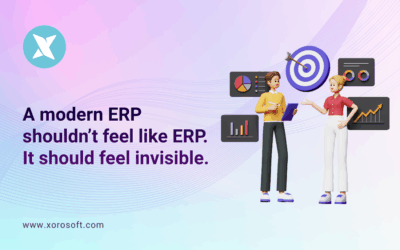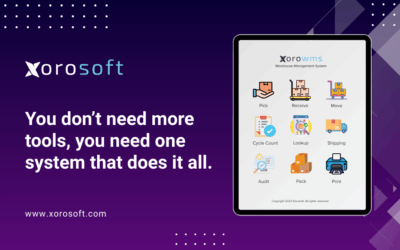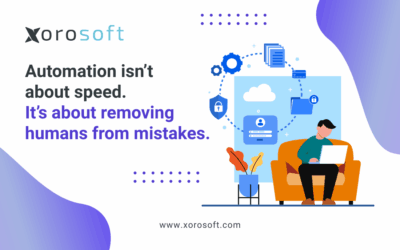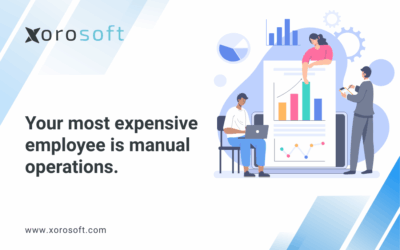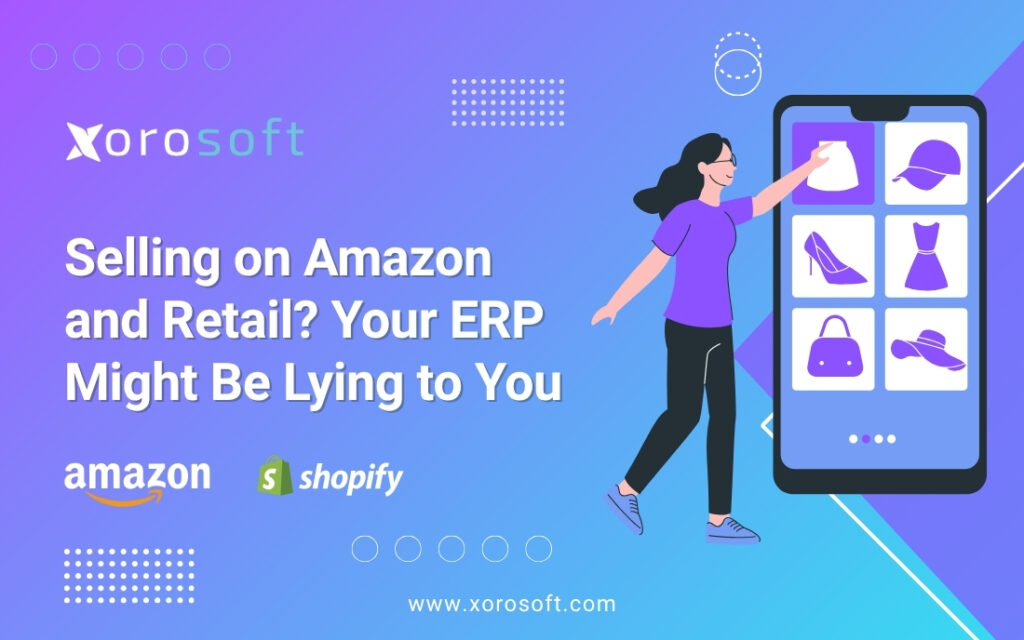
Why Multi-Channel Sellers Struggle to Keep Up
If you’re selling on both Amazon and through retail channels, chances are your system is misleading you. Without a multi-channel ERP for Amazon and retail, you could be working with outdated or incorrect data—and that can cost you customers, cash flow, and credibility.
Here’s the hard truth: if your business depends on both retail and e-commerce channels, your ERP might be misleading you. In fact, unless you’re using a multi-channel ERP for Amazon and retail, you’re probably flying blind.
To make matters worse, many sellers don’t realize there’s a problem until something breaks. Consequently, stockouts, overselling, or delayed fulfillment often catch them off guard.
What Happens When Your ERP Can’t Keep Up
When your ERP lags behind or misrepresents real-time data, the results are damaging. This isn’t just a tech issue—it directly impacts revenue and reputation.
For instance:
-
Amazon may show available stock that’s already been allocated to a retail PO.
-
Your fulfillment team might ship partial orders without realizing critical shortages.
-
Finance spends hours manually reconciling sales and cost of goods.
-
You oversell, lose your Buy Box on Amazon, or miss compliance deadlines for major retail accounts.
Because of these issues, fulfillment slows down, returns pile up, and trust erodes—internally and externally. Additionally, customer satisfaction takes a hit, which hurts retention.
Therefore, relying on outdated systems is no longer an option.
What Is a Multi-Channel ERP for Amazon and Retail?
Legacy ERPs weren’t built for today’s multi-channel world. They often operate on batch-syncs, bolt-on modules, and spreadsheets. As a result, your business loses visibility the moment complexity increases.
Moreover, most teams compensate by creating a patchwork of disconnected tools:
-
A legacy ERP with delayed syncs
-
Separate Amazon seller software
-
Manual spreadsheets
-
EDI tools for retail orders
-
A basic WMS or none at all
Unfortunately, this setup leads to data silos. Even when everything looks synced, the data might be hours—or days—behind.
Meanwhile, your business is moving in real time. Thus, without a unified system, those delays become costly.
Key Features of a Multi-Channel ERP for Amazon and Retail
To resolve this, businesses are turning to unified ERP platforms that handle everything from order to delivery.
Therefore, a system like Xorosoft ERP offers:
-
Real-time inventory visibility across Amazon, retail, and warehouse
-
Automated allocation when a retail PO is confirmed
-
Native EDI and Amazon integrations
-
A built-in warehouse management system, not a bolt-on
As a result, every department operates using the same real-time data. Consequently, teams move faster and make fewer errors.
Why Businesses Need a Multi-Channel ERP for Amazon and Retail
With so many moving parts, it’s easy to fall behind. That said, adopting a centralized system brings massive advantages.
Not only does it prevent overselling, but it also improves warehouse efficiency, speeds up fulfillment, and enhances financial accuracy.
Furthermore, unified data eliminates finger-pointing between departments and gives leadership clear insights for decision-making.
Xorosoft: A Powerful Multi-Channel ERP System for Amazon and Retail
Let’s explore how Xorosoft ERP helps sellers manage complexity with ease.
Unlike older systems, Xorosoft is cloud-native, fast to deploy, and natively integrated with tools modern sellers already use.
In addition, the platform’s intuitive interface helps teams adopt it quickly—without steep learning curves.
Real-Time Inventory That Matches Reality
Inventory updates the second it moves. Whether it’s picked, packed, returned, or transferred, Xorosoft keeps Amazon, retail, and warehouse data synced instantly.
This eliminates phantom stock and prevents overselling—both of which are common pain points.
Also, real-time updates keep finance and sales teams aligned at every step.
Amazon + Retail Integration Without Middleware
Xorosoft connects directly to:
-
Amazon Seller Central
-
Retail EDI platforms
-
Shopify and other online storefronts
This eliminates the need for third-party middleware or risky manual syncing. In other words, you get speed, control, and peace of mind.
Built-In WMS: Accuracy from the Ground Up
Xorosoft includes a fully integrated warehouse management system.
Key features include:
-
Bin-level tracking
-
Barcode scanning
-
Real-time pick and pack workflows
-
Inventory visibility down to the shelf
As a result, warehouse operations become more efficient and more accurate. In fact, many customers reduce fulfillment errors by over 80%.
Automation + Reporting = Less Guesswork
With live dashboards, Xorosoft gives your teams the insights they need when they need them.
Moreover, you can automate:
-
Purchase orders
-
Inventory replenishment
-
Invoicing
-
Alerts and reporting
Consequently, your staff spends less time on manual tasks and more time on growth.
Ranked #1 in Ease of Use on G2
Xorosoft is trusted by businesses around the world. It’s:
-
Ranked #1 in Ease of Use for ERP platforms on G2
-
A High Performer in the ERP category
-
Available on the Shopify App Store
Clearly, you’re in good company.
Benefits of Using a Multi-Channel ERP for Amazon and Retail
A modern ERP like Xorosoft doesn’t just improve operations—it transforms how you grow.
With centralized data, your business becomes proactive, not reactive. In addition, the ability to scale without hiring more headcount is a huge win.
Ready to Scale Without Chaos?
If you’re tired of second-guessing what your ERP is telling you, it’s time to upgrade.
Xorosoft gives you the visibility, accuracy, and control you need to scale confidently across Amazon, retail, and beyond.
Explore how a multi-channel ERP for Amazon and retail can streamline your business.
👉 Book a free demo and experience the future of connected commerce.
